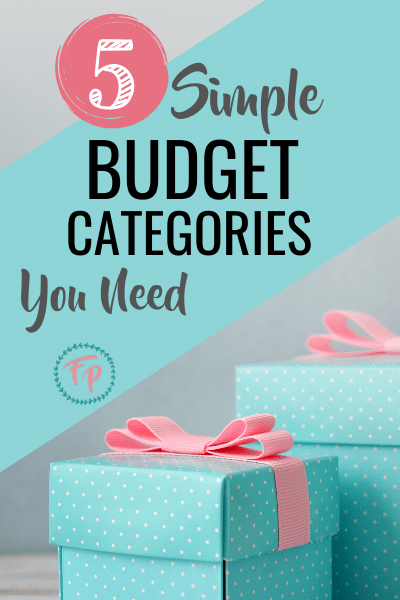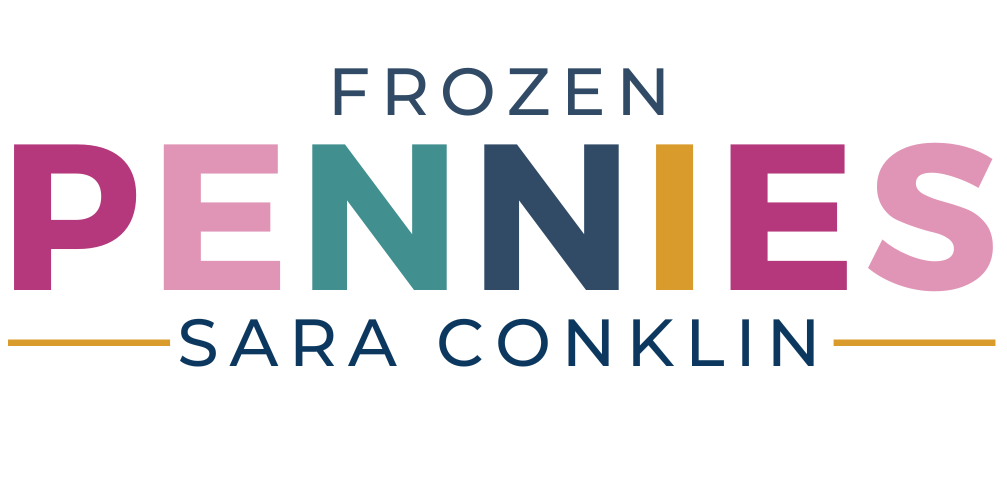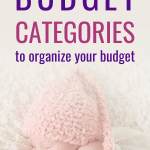Congratulations on starting a budget. That’s fantastic news! And as your personal Financial Coach, I am really proud of you. Don’t forget the budget categories you need to avoid any surprises.
Creating a budget for the first time can be overwhelming and confusing.
And there are many times when a budget is made, and you feel good about your efforts, only to run into an unexpected expense. Some bills that came up or an event that you never even thought about.
This list is extensive, and many categories may not apply to you. For example, if your children are grown, you won’t need to budget for kids’ clothes.
If you live in a rural area, there is no need to budget for Uber.
But it’s better to be over-prepared instead of underprepared. So take what you need and leave the rest.
What Are Personal Budget Categories?
Managing money effectively is a skill that holds the key to financial stability and long-term prosperity. One of the fundamental pillars of successful money management is budgeting.
By allocating funds to specific categories, individuals can gain greater control over their finances, track their expenses, and prioritize their financial goals. However, creating a budget can be a daunting task without proper guidance.
This article highlights the best budgeting categories everyone should consider to help you maximize your budgeting efforts. These categories cover essential aspects of daily life and provide a comprehensive framework for managing your money better.
- Fixed Expenses: Start by identifying and allocating funds to cover your fixed and recurring monthly costs that remain relatively stable. This category includes rent or mortgage payments, utility bills, insurance premiums, and loan repayments. By prioritizing these expenses, you ensure your basic needs are consistently met, providing a solid foundation for your financial well-being.
- Variable Expenses: Variable expenses encompass flexible costs that may vary from month to month, depending on your choices and circumstances. This category includes expenses like groceries, dining out, entertainment, transportation, and personal care items. By tracking and controlling your variable expenses, you can make informed decisions about where to cut back or adjust your spending habits.
- Savings: Savings are A crucial budgeting category often overlooked. Allocating a portion of your income to savings is vital for building an emergency fund, planning for future goals, and ensuring financial security. Set specific savings goals, whether for a down payment on a house, retirement, or a dream vacation and consistently contribute to this category.
- Debt Repayment: If you have outstanding debts, you must allocate a portion of your budget to repay them. Whether it’s student loans, credit card debt, or personal loans, creating a category dedicated to debt repayment will help you progress toward financial freedom.
- Financial Goals: Set a category for your long-term financial goals. This may include investments, retirement planning, education funds, or starting a business. By allocating funds towards your financial aspirations, you can actively work towards achieving them and secure a brighter future.
Incorporating these budgeting categories into your financial planning provides a structured approach to managing your money. It empowers you to make informed decisions, control your spending, and confidently work towards your financial goals.
By prioritizing these categories and consistently reviewing and adjusting your budget, you can establish healthy financial habits and lay the groundwork for a more secure financial future.
How Specific To Make Your Monthly Budget
Everyone who has a budget has a favorite technique. You can go “old school” and use a notebook and pencil. Some people relay resonate with a solid budget spreadsheet.
If you’re creative, you can create your budget binder and printables and use spreadsheets or an app. There are also techniques and people to follow.
Millions of people praise Dave Ramsey’s budget theories.
And then there are about a trillion other money gurus who have a different way of budgeting, including living on half your income and the 50/30/20 method.
The important thing is to have one. Know how much is coming in and going out during a specific amount of time. Easy peasy, right?
This is not a bare-bones budget strategy, although you could quickly transform it into one. This is a list of everything you MIGHT want to budget for.
Please don’t think you have to have all these budget categories.
Consider moving any money left in your budget balances to debt repayment or savings.
If you are looking for more information on Budgeting, you can check out this article: 25 Best Budget Hacks for Beginners
Simple Budget Catagories
I understand designing a budget can be overwhelming. I get that. I walk around, overwhelmed most of the time.
But it’s the BEST place to start to make sense of your money, reduce debt, increase savings, and have financial freedom.
While I will give you every category you might need, you do not need a line in your budget for all of them unless you want to. Most people will just ensure all these categories are included as the headings.
This creates simple budget categories for those not so detail-oriented who just want money for things when needed or are on a tight budget and don’t have much money for all the categories.
Here are six main categories to minimize your finance’s outgoing expenses.
- Housing
- Transportation
- Living Expenses
- Debt Payoff
- Savings
- Health
Monthly Income
Before you start outgoing, let’s ensure all the incoming has been accounted for. This is every single penny that comes into your house and should be the first step in the budgeting process..
- Your paycheck
- Spouse/Partner’s paycheck
- Side hustle
- Bonuses
- Tips
- Rental Property
- Alimony
- Child support
- Investment income (from 401K’s or IRAs)
- Social Security or SSI
- Gifts
- Government monetary funds (tax returns or stimulus checks)
- Miscellaneous (sale of items, change jar, bottle returns

Housing
Let’s talk about home. The housing category is everything about your four walls and roof. These are the things that keep your home functioning.
Having a roof over your head is essential, with heat for comfort and lights to see.
- Mortgage or rent
- Property taxes
- Household repairs
- Home improvements
- HOA dues
- Insurance
- Landscaping and lawn care
- Home security
- Snow removal
Utilities
We all have essential budget categories, but let’s also remember the nonessential payments that keep our home a happy one.
- Natural gas or propane
- Trash
- Internet
- Water
- Home phone
- Electricity
- Cable or Satellite
- Cell phone
- Sewer
- Streaming services (Netflix, Hulu, Disney+)
- Music Services (Amazon Music, Spotify, Sirius XM)
Food
Not only is eating a necessity, but it’s also a form of entertainment for many. I grew up in an Italian family, and food was love. Although your food budget is important, the good news is, it’s also the most flexible. It will also vary depending on the season of life you are in. Young children will not cost as much to feed as teen boys.
- Groceries
- Restaurants
- Takeout
- Lunches for work or school
- Coffee

Clothing
Keeping our bodies safe from the elements is our priority. Looking cute and stylish may run a close second, so let’s ensure we include everything to make that happen.
- Adult clothing
- Children’s clothing
- Shoes
- Accessories (jewelry, purses, belts, scarves)
- Special occasion clothing
- Dry cleaning services
- Laundromat expenses
Transportation
We need to work to make that money to pay those bills. That makes transportation pretty important.
- Car payment
- Gas
- Car insurance
- Tires
- Vehicle inspections
- Registration fees
- Public transportation (bus, taxi, Uber)
- Parking
- Tolls and EZ Pass
- Oils Change
- Car Washes
- Car replacement fund
- Roadside assistance
Pets
Loving our pets comes at a price, so don’t forget a budget category just for them. Ensuring no surprises gives us less stress and more room to love our fur babies. Because we know they are not cheap.
- Food and treats
- Routine Vet visits
- Emergencies
- Toys
- Licensing
- Medications
- Insurance
Household supplies
Household supplies are everything that has to do with the home, including some nonnecessities like electronics.
- Paper products
- Cleaning supplies
- Small appliance replacement
- Cookware
- Detergents and soaps
- Tools
- Computer and supplies (ink, paper, and replacement)
- Shipping and postage
- New technology (phone, tablet, TV)
Personal care
All needs and services a person requires will fall under the personal care budget category. From haircuts to eyebrow waxing – it’s all right here.
- Hair cuts and color
- Haircare supplies
- Personal Hygiene
- Toiletries
- Manicure/pedicure
- Spa services (facials, massages, eyebrow waxing)
- Feminine products
- Gym/exercise memberships and subscriptions
Education
Whether it’s your education or your children’s education, this category has everyone covered, from preschool to certification courses for your job.
- Tuition (preschool, college, private school)
- After-school child care
- School supplies
- Books
- Sports & extracurricular activities
- Field trips
- Uniforms
- Parking
- Continuing Ed classes and refresher
Entertainment
This might be everyone’s favorite. Having a budget category for entertainment is important for our well-being. Even if you are trying to get out of debt, having a small amount set aside for fun is good for the soul.
- Personal blow money (adult allowances)
- Date night
- Babysitters
- Day trips
- Hobbies
- Movies
- Concerts
- Subscriptions
- Sports
- Video gaming
- Crafts
- Books
- Alcohol
- Hunting camp dues
Gifts & Giving
This category always seems to be the last to get funded in our house. We never set aside an amount to spend on girl scout cookies or the Peewee football team selling pizza.
Christmas is the same day every year – you know it’s coming. Setting up a pre-decided amount is proper adulting.
- Birthdays
- Anniversaries
- Christmas
- Other holidays
- Weddings
- Charitable donations
- Fundraisers
- Tithing
- Other special occasions

Work
Many people have a certain amount of reimbursement for work clothes. My husband gets reimbursed when he purchases work boots.
But he has to come up with the money first. His company supplies shirts and pants. But some don’t have those perks. Make sure a separate fund is set up for this purpose if it applies.
- Work clothes
- Work Boots or shoes
- Training
- Union Dues
- Networking clubs
Medical
Our health really should come before all other categories. Make sure all health-related expenses are covered.
- Health Insurance (medical, dental, vision)
- Supplemental Insurance
- Disability insurance
- Copays
- Non-covered medical bills
- Prescriptions
- Over-the-counter medications (band-aids, cough drops, headache medicine)
- Mental health & counseling
- Life Insurance
Children
Our children are costly. Everything they do requires a fee, and they grow so fast. Be prepared financially for all the money you will need with kids.
- Child support
- Babysitting & daycare
- Baby supplies
- Allowance
- Toys
- Extracurricular activities and clubs (Little League, Boy Scouts, piano lessons)
- Yearly photos
- Summer camp

Debt
Getting out of debt is one of the most important things to me. We find it most important for our family not to have most items on this list.
But if you do and you need help navigating this, I am here to help.
- Credit cards
- Student loans
- Family loans
- Medical bills
- Personal loans
- Car loans
- Recreational loans (camper, motorcycle, boat)
- HELOC
Saving
I have become addicted to saving. I find it the most fun in this season of my life.
Remember, if saving is vital to you, pay yourself first. If you are trying to get out of debt, ensure you have at least a $1,000 emergency fund in a savings account before you get started.
Consider being in charge of how much you save and not rely on the government as you age. This isn’t someplace where you put extra money at the end of the month. You do this first.
- Emergency Fund
- Retirement
- Children’s college
- Family Vacation
- Investing
- Short-term savings (new furniture, pool, Christmas)
- Saving
Cutting Expenses
When your budget isn’t working, and expenses exceed your income, cutting and reducing your spending becomes crucial.
Start by examining your discretionary expenses and identifying areas to make adjustments. Consider reducing non-essential items such as dining out, entertainment, and impulse purchases. Look for opportunities to save on bills by renegotiating contracts or switching to more cost-effective options.
Additionally, explore strategies to lower fixed expenses, such as finding cheaper housing options or refinancing loans. By taking a proactive approach and making conscious choices to cut expenses, you can regain control of your budget and improve your financial situation.
Final Thoughts On Best Budgeting Categories For Your Budget Plan
I understand this is so much to process; you do not have to do all of them. As I said, many will not apply to you, or you might have something unique.
You can also just use the basics and lump all items needed into those categories, but this will help you come up with a decent list of all the things you spend money on so you know how much to put in that specific general category.
Living with a budget means living with intention. Putting yourself in the driver’s seat and anticipating all the needs and expenses before they come along is smart.
It’s living a proactive life instead of a reactive life.
Your income will decide your budget and how many categories you will use. There isn’t one “best way” budgeting method as long as you do the work.
The first step in financial freedom is making a budget.









 What is the 30 Day Rule for Saving Money?
What is the 30 Day Rule for Saving Money?